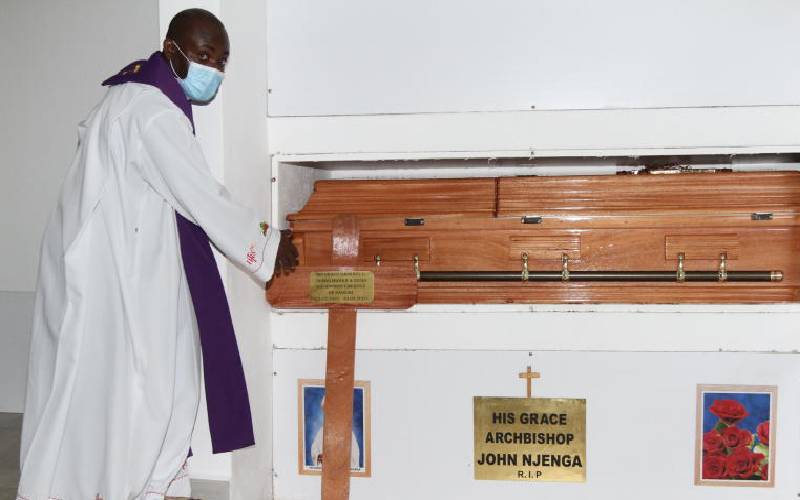×
The Standard e-Paper
Fearless, Trusted News

A brown casket bearing the body of Archbishop Ndingi Mwana a’Nzeki was placed in a crypt at the basement of Nairobi's Holy Family Basilica yesterday.
This marked the final send-off of the cleric who never shied off from speaking his mind, especially in defence of the poor against the government of the day.